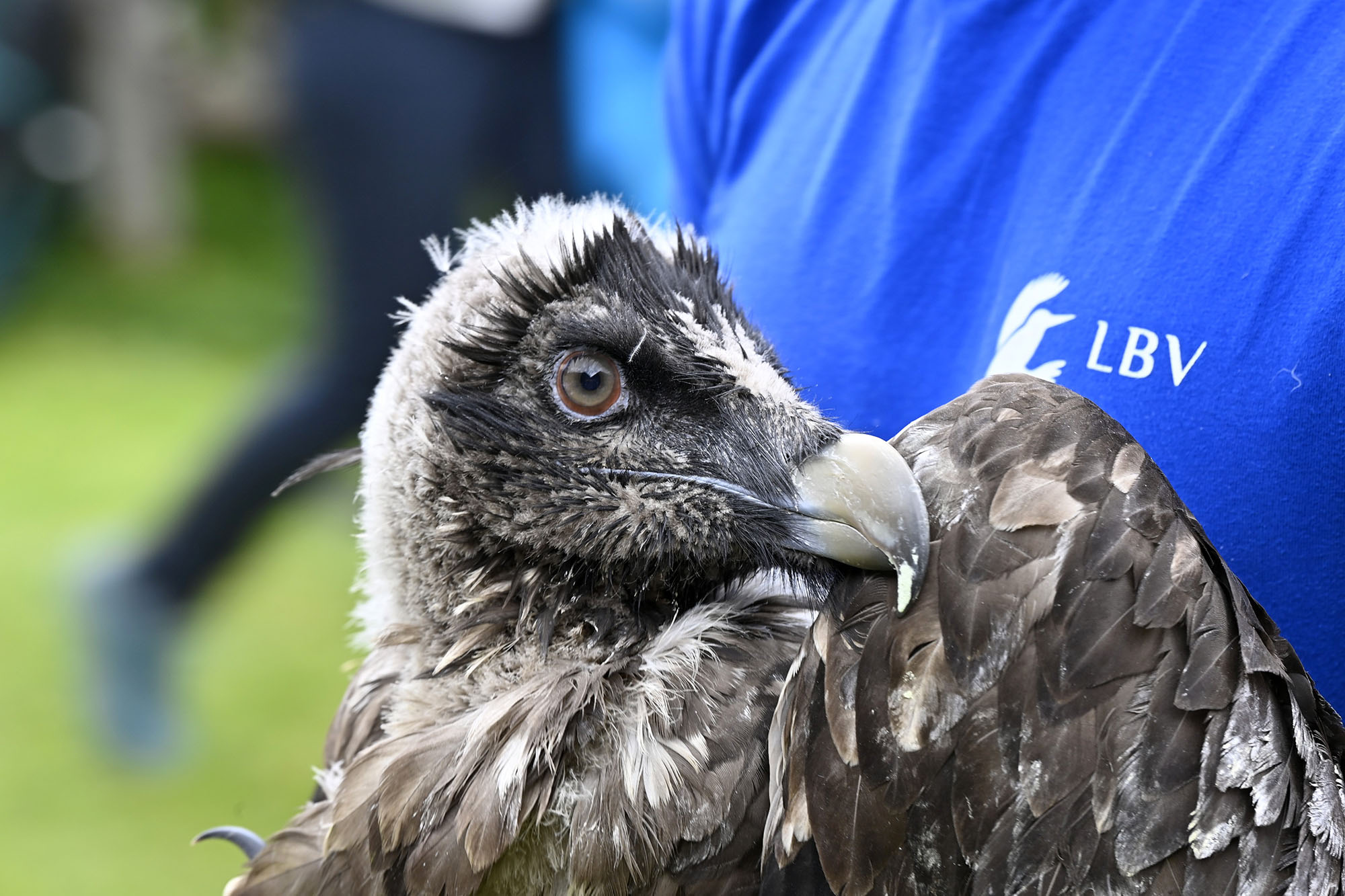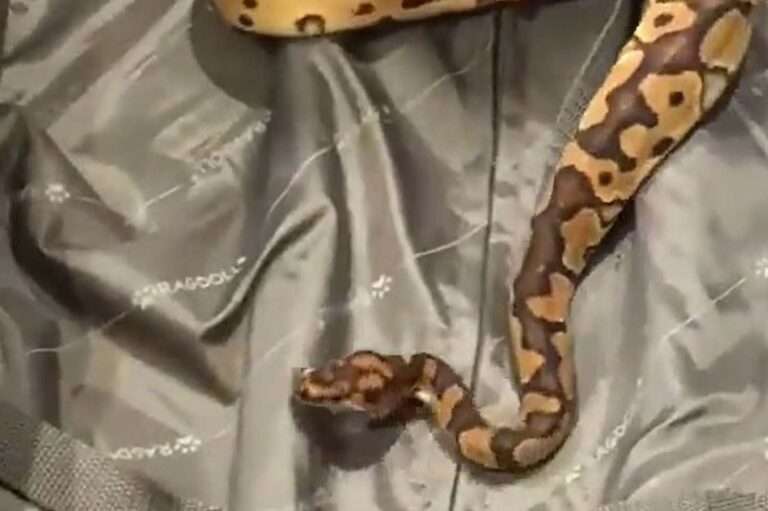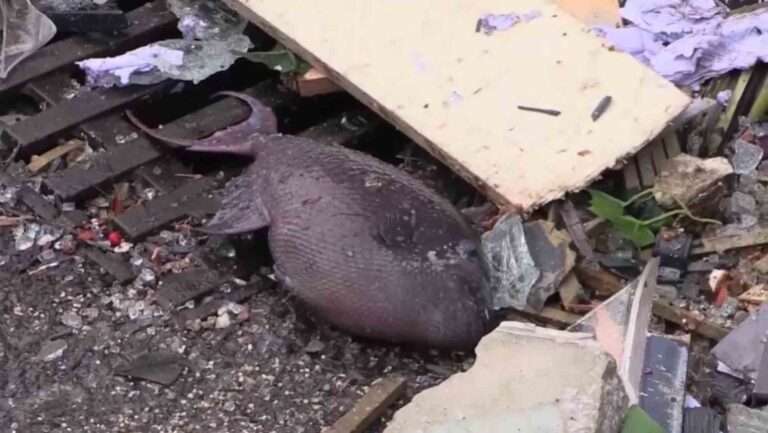Fears are growing after two young bearded vultures that were released into a national park in Germany for the first time in 140 years appear to have vanished.
Greenpeace said in a statement obtained by Newsflash that it is now waiting for signs of life as fears increase over the birds’ well-being.
The Berchtesgaden National Park located on the south of Germany and near the border with Austria had welcomed the two bearded vultures after they were born in Spain and then sent to Germany in June 2021.
The bearded vultures named Wally and Bavaria were around 100 days old at the time after being born in the Andalusian breeding station in Spain, which is run by the Vulture Conservation Foundation (VCF) as a part of the EAZA Ex-situ Programme (EEP), formerly known as the European Endangered Species Programme.
But contact with Bavaria has reportedly been lost since the end of November 2021 and monitoring Wally became more “sporadic” as time went on, and this is apparently due to the GPS transmitters, which the birds have been fitted with, apparently functioning poorly in cloudy weather, still according to Greenpeace.
But Toni Wegscheider, in charge of the project for the State Association for Bird Protection (LBV) in Bavaria, has not lost hope, saying: “They have developed optimally in terms of range, in terms of weight, they are fully capable, and what a bearded vulture needs to be able to survive, both of them can – apart from breeding.”
But Greenpeace said that there were nevertheless “many dangers even for the largest bird in the Alps, which reaches a wingspan of almost three metres.” It added: “In addition to lightning strikes or attacks by a golden eagle, this also includes avalanches”, even though these can also be useful to the birds as well.
Wegscheider said: “Avalanche time is vulture time, because every avalanche is potentially a source of food if a chamois or an ibex is swept away.”
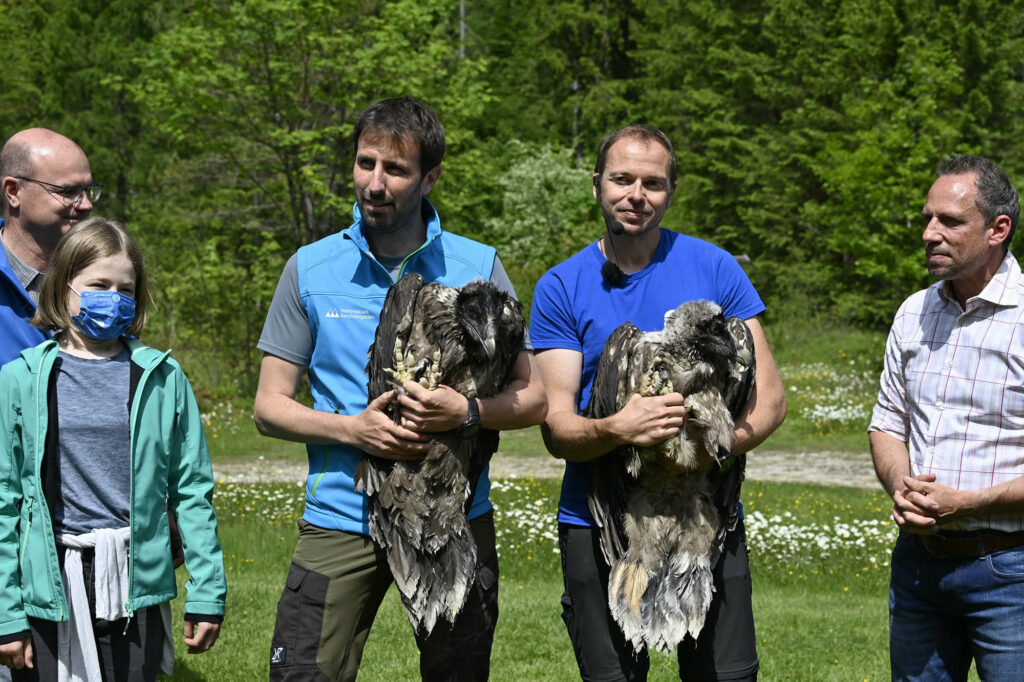
(Hansruedi Weyrich, LBV/Newsflash)
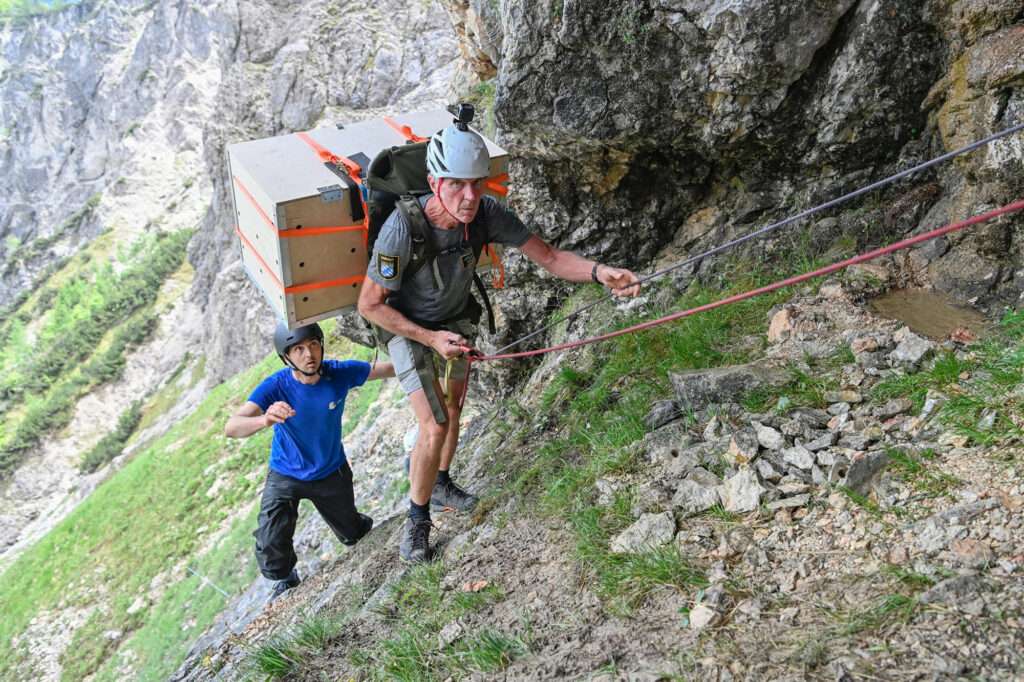
(Hansruedi Weyrich, LBV/Newsflash)
Another concern for the birds is lead poisoning, with Wegscheider saying: “We know that 30 to 50 percent of all bearded vultures in the Alpine region – completely unnecessarily – perish from lead poisoning.”
The birds ingest the neurotoxin when they eat the bones of animals that have been shot with ammunition that contains lead as an ingredient.
According to LBV, which supported the project, the two birds were released to strengthen the Central European population of the species and close an important geographical gap within the next 10 years.
LBV chairman Dr Norbert Schaffer had said at the time of their release: “This is a historic moment for species protection in Germany and a real milestone. The largest bird in the Alps returned to Bavaria today.”
Dr Ronald Baier from the Berchtesgaden National Park had added: “We are very pleased that we were able to set the foundation for the return of this fascinating bird species to Germany today.”
In addition, the Bavarian Environmental Minister Thorsten Glauber said at the time that the ministry would support the project by investing around EUR 610,000 (GBP 509,000) over the next three years.
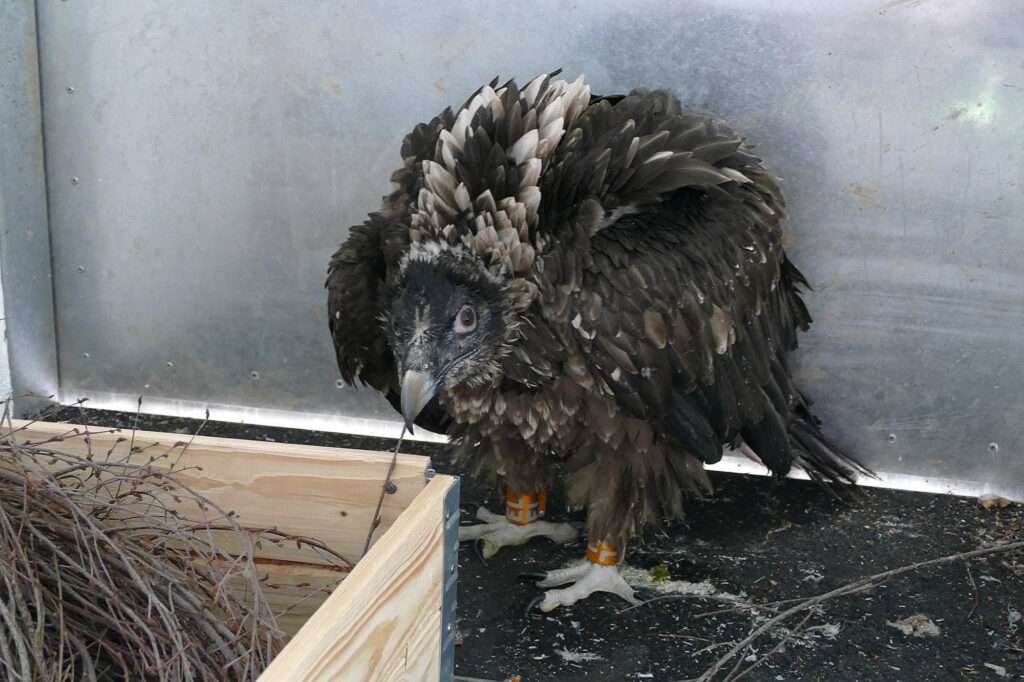
(Jorg Beckmann/Newsflash)
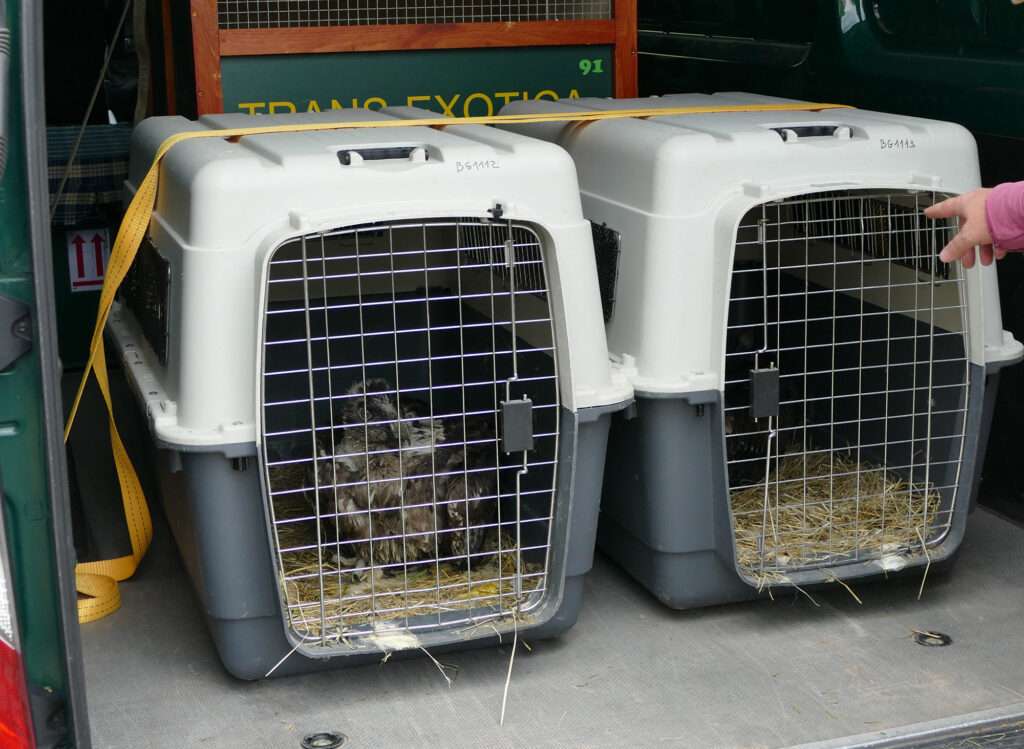
(Jorg Beckmann/Newsflash)
Glauber added: “I wish the two bearded vultures Wally and Bavaria a long life. They will make an important contribution to strengthening the species population in the Alps.”
Because they were still not able to fly, the two female vultures had to be carried up in the mountain by a small team made of national park employees, who had previously placed the birds in specially designed boxes.
Project Manager Ulrich Brendel had said: “After the successful climb we placed Bavaria and Wally in nests made of spruce twigs and sheep’s wool which we prepared in advance. Then we attached GPS transmitters to them and they were examined again. Then we withdrew to allow the two vultures to get used to their new home.”
Bavaria and Wally’s nests had been placed on an almost three-metre large rock which is located 1,300 metres (4,265 feet) above sea level and was selected by national park experts.
The birds, which were set up so that they could continue to live without human contact, were being monitored by scientists at the natural park’s observation site through a live stream enabled by IR cameras.
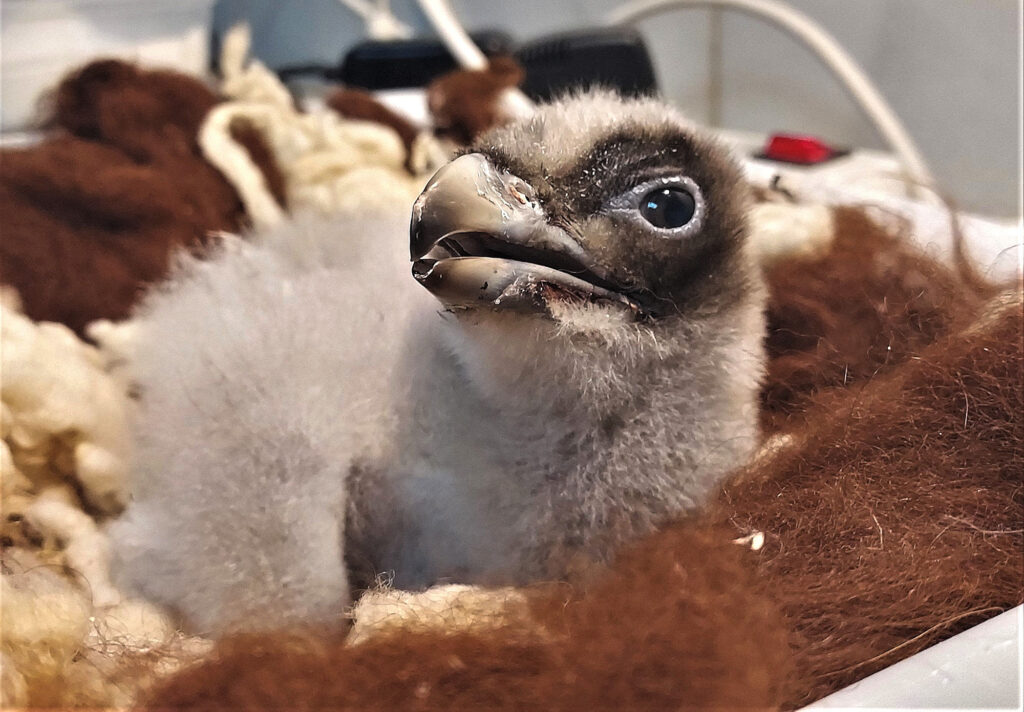
(P. Rodriguez/Newsflash)
LBV Project Manager Toni Wegscheider had said: “This will allow us to recognise irregularities immediately so that we can offer the birds optimal protection.”
Brendel, who said that the two birds would be fed regularly, added: “The vultures will be given fresh food while they are asleep so that they do not associate it with anyone.”
The national park reported that interested enthusiasts could follow Bavaria and Wally’s development on their website.
To find out more about the author, editor or agency that supplied this story – please click below.
Story By: Joseph Golder, Sub-Editor: William McGee, Agency: Newsflash
The Ananova page is created by and dedicated to professional, independent freelance journalists. It is a place for us to showcase our work. When our news is sold to our media partners, we will include the link here.

